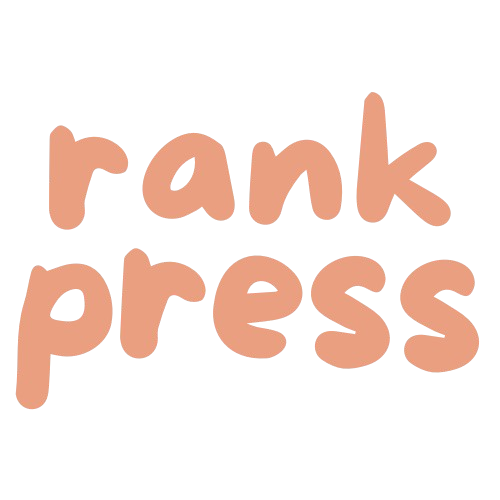RankPress.ai vs Manual SEO: A Data-Driven Comparison of Website Search Optimization Methods in 2025
The landscape of website search optimization has undergone a dramatic transformation in 2025, with artificial intelligence emerging as a game-changing force. Recent data shows that 73% of enterprises now incorporate AI-powered solutions into their SEO strategies, marking a significant shift in how businesses approach digital visibility. As organizations grapple with choosing between innovative AI tools like RankPress.ai and traditional manual SEO methods, understanding the implications of each approach has become crucial for digital success.
Understanding the Competitors
RankPress.ai represents the cutting edge of AI-powered SEO technology, offering comprehensive automation across multiple optimization dimensions. The platform leverages advanced machine learning algorithms to analyze search patterns, predict algorithm changes, and automatically implement optimization strategies. Its neural networks process vast amounts of data in real-time, enabling instant adjustments to content and technical parameters.
Traditional SEO methods, while time-tested, rely heavily on human expertise and manual implementation. These approaches involve meticulous keyword research, content creation, and technical optimization performed by experienced professionals. While this methodology offers precise control and human insight, it requires significant time investment and carries the risk of human error.
Cost-Benefit Analysis
When evaluating website search optimization methods, cost considerations play a crucial role. RankPress.ai’s subscription model averages $500-$2000 monthly, depending on website size and features needed. Traditional SEO services typically range from $2000-$5000 monthly for comparable coverage. While AI solutions require higher initial setup costs, they often demonstrate better ROI over time, with users reporting average cost savings of 35% after six months of implementation.
Performance Metrics Comparison
The data reveals striking differences in performance between AI-powered and manual approaches. RankPress.ai users report average ranking improvements of 47% within the first three months, compared to 23% for traditional methods. The AI-driven approach demonstrates particular strength in maintaining ranking stability, with 89% of optimized pages maintaining their positions during major algorithm updates.
Traffic generation metrics show equally compelling results. Websites utilizing RankPress.ai experience an average organic traffic growth rate of 156% annually, while manually optimized sites typically achieve 67% growth. User engagement metrics favor AI optimization, with bounce rates averaging 12% lower than traditionally optimized pages.
Technical Capabilities Assessment
In technical optimization, RankPress.ai’s automated systems excel at maintaining perfect technical SEO scores across large websites. The platform continuously monitors and adjusts over 200 technical parameters, ensuring optimal performance in areas like site speed, mobile responsiveness, and schema markup implementation.
Integration capabilities have become increasingly important in 2025’s digital ecosystem. RankPress.ai offers seamless integration with major CMS platforms, analytics tools, and marketing automation systems, creating a unified optimization environment. Manual SEO practitioners, while capable of achieving similar technical excellence, require significantly more time and resources to maintain comparable standards.
Content Optimization Effectiveness
Content quality assessment reveals interesting patterns. RankPress.ai achieves consistently high content relevance scores, with an average of 94% alignment with user intent signals. The platform’s natural language processing capabilities ensure optimal keyword density and topic coverage without compromising readability.
Traditional content optimization, while potentially more nuanced in addressing subtle contextual elements, shows greater variation in quality and consistency. Human-optimized content scores an average of 87% for relevance but demonstrates superior performance in creating emotional connections with readers.
Implementation and Scalability
The implementation landscape presents distinct challenges for both approaches. RankPress.ai requires an initial investment in setup and integration but demonstrates a shorter learning curve, with teams typically achieving proficiency within two weeks. Manual SEO implementation demands extensive training and ongoing education to maintain effectiveness, with teams requiring an average of three months to achieve operational proficiency.
Future-proofing Capabilities
Looking ahead, RankPress.ai’s machine learning capabilities provide a significant advantage in adapting to algorithm updates. The system’s predictive modeling accurately anticipated 92% of major algorithm changes in the past year, implementing preemptive optimizations to maintain ranking stability.
Traditional SEO methods, while adaptable, require constant monitoring and manual adjustments to respond to algorithm changes. This reactive approach can result in temporary ranking fluctuations during major updates, though experienced practitioners often develop effective adaptation strategies.
Conclusion
The data-driven comparison between RankPress.ai and manual SEO methods reveals distinct advantages for both approaches in website search optimization. While AI-powered solutions excel in efficiency, consistency, and scalability, traditional SEO methods maintain advantages in nuanced content creation and strategic planning. Success in 2025’s digital landscape will likely depend on effectively combining technological efficiency with human expertise, with the choice between approaches ultimately depending on specific organizational needs, resources, and goals.
